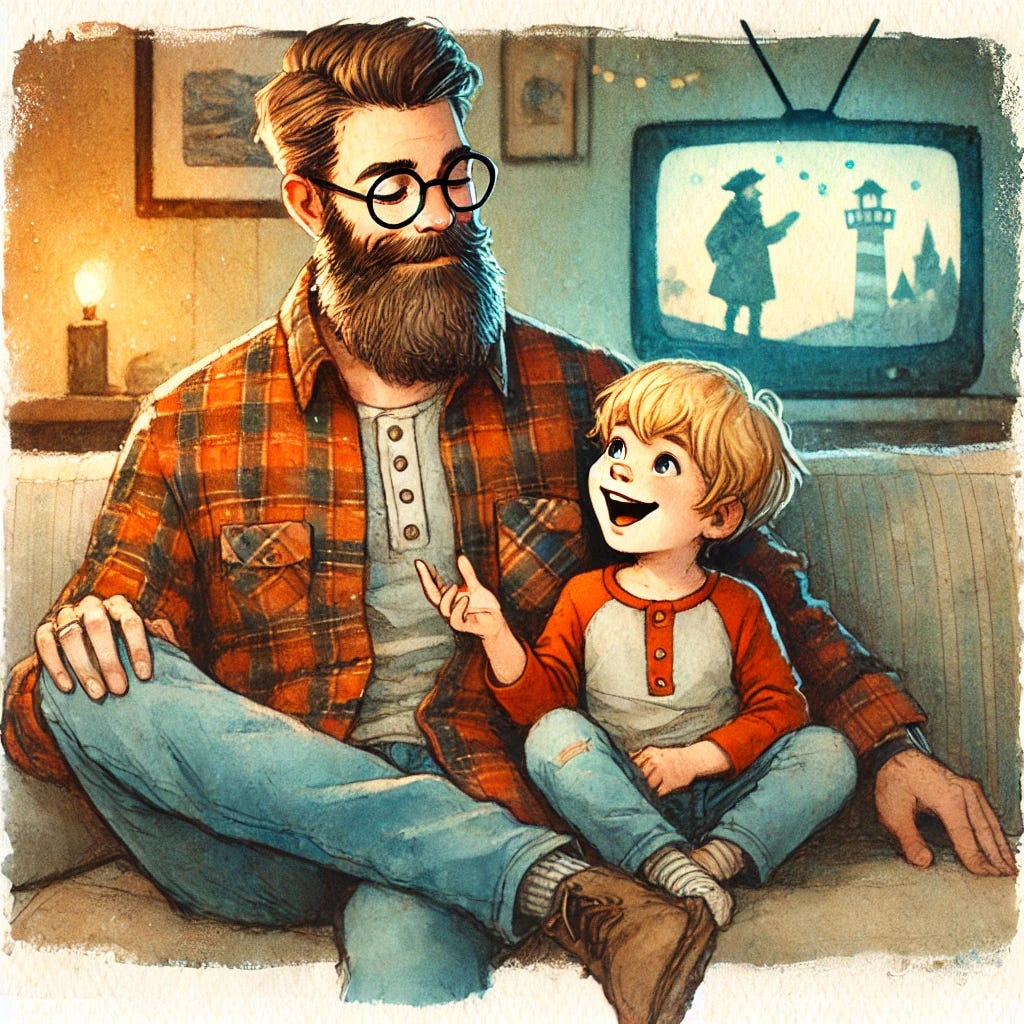Answering the Infinite 'Why'
Turning my child's unending questions into moments of connection and growth
"Why's he up there, Daddy?"
My son was straddling the threshold of reality and third-tier Disney magic. Mortimer Mouse had just climbed into the crow's nest of the pirate ship, working to hatch his usual half-brained scheme to swindle Mickey and Minnie.
"Because he wants to see far away. People on ships used to—"
"Why?"
"Because the ocean is REALLY big, so pirates need a place where they can see really far."
"Why?"
It had been like this all day. Saturday was winding down, and I was fairly certain we had passed the 500-question mark. At breakfast, he'd asked why there was chocolate on his breakfast bars. At lunch, why the moon wasn’t over our deck. He had interrogated me about his little sister’s laughter and why his new ball was green. And now, we had arrived at Mortimer Mouse.
I exhaled. While my wife was pregnant with our son, she and I made a series of pacts about how we wanted to parent. Some of the ideas we had, like restricting TV until he was two, went out the window fairly quickly. But one we both hold dear is that we never want to be "because I said so" parents. One of the most important things we can teach him isn’t just answers—it’s how to ask better questions. The world is full of quick explanations and easy assumptions, but curiosity is what keeps us searching for what’s real. And beyond that, I know that one day, he won’t ask anymore. As parents, why should we squander precious time when our children view us as their main source of knowledge?
For now, this is how he learns. The world is still new to him, full of gaps he’s trying to fill, like an infinite jigsaw puzzle with only a few pieces in his hands. We can meet that curiosity with impatience, or we can meet it with presence. The questions will come either way—the only thing in our control is how we respond.
So I answered. Again. And again. Eventually, his attention drifted, and we moved on.
Later that night, after he was asleep, I thought about how easy it is to see this phase as a nuisance—to treat his endless stream of “why” as something to endure rather than engage with. But what if it’s not an interruption? What if it’s an invitation?
One day, the questions will slow. One day, he’ll stop looking to me first for answers. But today, he still believes I have them. And maybe my job isn’t just to answer—but to show him that questions are worth asking. To teach him that curiosity isn’t something to outgrow.
And to remind myself that time with our kids already moves too fast. We shouldn't wish it to move faster.



